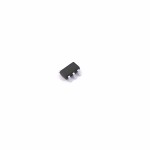Understanding Connectors: Essential Components for Reliable Electrical Systems
Connectors are essential components in electrical systems, allowing for the seamless transmission of electrical signals and power between different devices and parts of a system. Whether in consumer electronics, automotive applications, industrial machinery, or telecommunications, connectors play a vital role in ensuring the reliability and efficiency of electrical connections. This article explores the types, functions, and significance of connectors in various fields.
What Are Connectors?
At their core, connectors are devices designed to establish a temporary or permanent link between electrical circuits, enabling current to flow from one part of a system to another. They consist of two main parts: a plug (or male connector) and a socket (or female connector). These parts are designed to fit together securely, creating a stable electrical connection while ensuring safety and durability.
Types of Connectors
Connectors come in various types, designed to meet specific needs depending on the application. Some of the most common types include:
Electrical Connectors: These connectors are designed to carry electrical signals or power. Examples include USB connectors, HDMI connectors, power connectors, and cable connectors.
Data Connectors: Data connectors are used to transfer information between devices. Popular examples are Ethernet connectors, SATA connectors, and Fibre optic connectors.
Coaxial Connectors: These are commonly used in video and radio applications, where a central conductor is shielded by a surrounding layer for signal protection.
Automotive Connectors: Specifically designed for the automotive industry, these connectors ensure reliable connections in vehicles for components such as sensors, lighting, and infotainment systems.
Industrial Connectors: These are designed for use in machinery and equipment found in industrial settings. They often feature rugged designs to withstand harsh environments, including heavy-duty connectors used for power transmission and data networking.
Circular Connectors: As the name suggests, circular connectors have a round shape and are often used in military and aerospace applications due to their durability and resistance to environmental factors.
Importance of Connectors
The significance of connectors in electrical systems cannot be overstated. Here are some reasons why they are crucial:
Signal Integrity: Connectors ensure that electrical signals pass through systems without interference, degradation, or loss of data. This is particularly important in fields such as telecommunications and data processing.
Safety: Connectors provide secure and stable connections, reducing the risks of short circuits, electrical fires, or damage to devices and circuits. Proper connectors prevent accidental disconnections, minimizing the chance of electric shock or system failure.
Flexibility and Modularity: Connectors allow systems to be modular and flexible. They enable easy assembly and disassembly, facilitating maintenance, upgrades, and repairs without the need for major reconfigurations of the system.
Durability and Reliability: High-quality connectors are designed to withstand mechanical stresses, environmental conditions (such as moisture, temperature, and vibrations), and electrical stresses, ensuring long-term, uninterrupted operation of the system.
Applications of Connectors
Connectors are used in nearly every industry and are integral to the functionality of various devices:
Consumer Electronics: Devices like smartphones, laptops, televisions, and gaming consoles rely on connectors for power, audio/video transmission, and data transfer. USB and HDMI connectors are prime examples.
Automotive Industry: Modern vehicles contain hundreds of connectors used for everything from engine control to infotainment systems. These connectors are designed to handle the extreme temperatures and vibrations present in cars.
Industrial Applications: Connectors are critical in industrial automation, robotics, and control systems, where reliable and secure connections ensure the continuous operation of machinery and equipment.
Aerospace and Defense: The aerospace industry demands connectors that are robust and resistant to extreme conditions, including high altitudes, radiation, and intense pressure. These connectors ensure the performance and safety of aircraft and space exploration systems.
Telecommunications: Connectors in telecommunications are used to link equipment for transmitting voice, video, and data signals. Fiber optic connectors, for instance, are crucial for high-speed internet services.
Conclusion
Connectors are the unsung heroes that keep electrical systems functioning smoothly and reliably. With countless variations and applications, connectors ensure the efficient transfer of power and data across devices, industries, and technologies. As the demand for more sophisticated, high-speed, and secure systems continues to rise, the role of connectors will only become more crucial in enabling innovation and ensuring the reliability of electrical and electronic systems worldwide.




